By Glyn Henman
Working with people is always a messy business because we are people, and young people are no different and that is what makes Young Life both fun and challenging. In recognising this, we need to understand that we are not in a position to provide suitable care for every possible situation that we encounter.
As a result, we need to be aware of our limitations in the service that we provide young people. We are not health care professionals, we are not mental health professionals, and we are not professional counsellors or family therapists. We are concerned adults who believe that all young people need to be introduced to Jesus by someone they know and trust.
When do things get beyond the service that Young Life provides?
Situations that often go beyond the realm of Young Life’s expertise are: drug addiction, eating disorders, sexual abuse, sexually transmitted disease, pregnancy, criminal activity, depression, suicide, homelessness etc… All of these plus many other issues may fall outside the skill level and capacity of individual leaders and Area Directors. At that point, you need to know what to do and where to turn for help.
What do I do when the issue is bigger than I can handle?
- Tell the young person you are working with that you will need to get outside advice on what to do next. This builds trust with the young person.
- Go and speak with your Senior Leader or Area Director. They often have had more experience and will know if outside help is required.
- Develop an action plan with your Senior Leader or Area Director and share that plan with the young person you are working with. Depending on the issue, you may need to include parents in the action plan.
- Action the plan together and involve the suitable external services as required.
Note: Young Life Australia Policy states it is mandatory to report all cases of sexual or physical abuse against a young person. Failure to report in some states and territories is a criminal offence. If you sense that a young person is about to disclose this type of information, you need to inform them of your responsibilities before they disclosure.
What services should I seek out?
- Local GP: Establish a relationship with a trusted GP in your community. This relationship will pay huge dividends on physical health issues in general and may be a first point of call for mental health issues etc.
- Community and Family Services: This office will be able to provide correct procedures and responsibilities for reporting abuse of young people in your state or territory. The how, when and why will be covered. Each state and territory will need to be acquainted with local laws.
- Police: Often they have a Youth Liaison Officer who deals with youth and community issues dealing with young people.
- Accommodation: Research any crisis, medium or long-term accommodation facilities in your community for young people who find themselves homeless.
- Professional Counsellors: Research any youth and family counsellors operating in your community.
- Local Council: They often have a youth interagency meeting once a month, where all the local youth agencies meet together to share information. Many also have a community grants program to help support local work.
- Phone Help Lines: These are not only useful for young people, but can be great resource for you in your leadership. There are some of these numbers listed on the web page. www.younglife.org.au and click on resources.
- School: The school you are working in may already have many of these relationships established so that may be a good place to start. If they do not have this established, it may be a great way to serve the school by compiling this information.
- Church: Some local churches have set up community support programs that you can tap in too. They may also have suitable professionals in their congregation who may become an invaluable resource for specific areas of training for you and your area.
[su_button url=”https://training.younglife.org.au/wp-content/uploads/2016/08/Responding-to-Crisis.pdf” target=”blank” style=”flat” background=”#83a83d” size=”8″ radius=”5″ icon=”icon: user-circle-o” icon_color=”#ffffff” text_shadow=”0px 0px 0px #000000″]Download – Responding to Crisis[/su_button]
